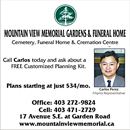- News Front Page
- Uncategorized
- Headline News
- Filipino Calgarian
- Business
- Pinoy Stories
- Community News
- Publisher's Note
- The Main Ingredient
- Views and Opinions
- Maikling Kwento
- Alberta News
- OFW – Month
- Travel News
- Health and Lifestyle
- Pinoy Toons
- Pinoy Spirit
- Entertainment
- The Philippine Lawyer
- Horoscope
- Greetings
- Editorial
- About Us
- Greetings From the Prime Minister
- Greetings from the President of the Philippines
- Greetings from the Premier of Alberta
- Greetings from the Mayor of Calgary
- Advertise With Us
- Disclaimer
- Subscription
Publisher's Note
- Publisher’s Note
Dear readers, The summer is going fast as everyone is having fun especially that we just wrapped up the festivities of the 10 days Calgary Stampede. The weather cooperated in a way where it showered during the parade but it all went well. I’m sure that the organizers of Calgary Stampede were all happy with an [...]
Visitors to Pinoytimes
Page added on June 16, 2016
Post-traumatic Stress Disorder

What is PTSD?
Post-traumatic stress disorder (PTSD) can occur after you have been through a traumatic event. A traumatic event is something horrible and scary that you see or that happens to you. During this type of event, you think that your life or others’ lives are in danger. You may feel afraid or feel that you have no control over what is happening.
Anyone who has gone through a life-threatening event can develop PTSD. These events can include:
- Physical violence.
- Sexual violence, such as rape.
- Serious accidents, such as a car wreck.
- Natural disasters, such as a fire, tornado, flood, or earthquake.
- Combat.
- Military sexual trauma.
- Terrorist attacks.
After the event, you might find that you are thinking a lot about what happened, avoiding reminders about the event, and thinking negative thoughts about yourself and the world.
What are the symptoms?
After going through a traumatic event, you may:
- Feel upset by things that remind you of what happened.
- Have nightmares, vivid memories, or flashbacks of the event. You may feel like it’s happening all over again.
- Avoid places or things that remind you of what happened.
- Often feel bad about yourself and the world.
- Feel numb or lose interest in things you used to care about.
- Feel that you are always in danger.
- Feel anxious, jittery, or irritated.
- Have trouble sleeping or keeping your mind on one thing.
PTSD symptoms can change your behaviour and how you live your life. You may pull away from other people, work all the time, or use drugs or alcohol. You may find it hard to be in relationships, and you may have problems with your spouse and family. You may become depressed. Some people with PTSD also have panic attacks, which are sudden feelings of fear or worry that something bad is about to happen.
Children can have PTSD too. They may have the symptoms above and symptoms that depend on how old they are. As children get older their symptoms are more like those of adults.
- Young children may become upset if their parents are not close by. Or children may have trouble sleeping or suddenly have trouble with toilet training or going to the bathroom.
- Children who are in the first few years of elementary school (ages 6 to 9) may act out the trauma through play, drawings, or stories. They may complain of physical problems or become more irritable or aggressive. They also may develop fears and anxiety that don’t seem to be caused by the traumatic event.
What can you do if you think you have PTSD?
If you think you have PTSD, it’s important to get treatment. Treatment can work, and early treatment may help reduce long-term symptoms.
If you think you have PTSD:
- Talk to your family doctor.
- Talk to a mental health professional, such as a therapist.
- If you’re a veteran, contact Veterans Affairs Canada.
- Talk to a close friend or family member. He or she may be able to support you and find you help.
- Talk to a religious leader.
- Fill out this form and take it with you to the doctor.
https://myhealth.alberta.ca/health/layouts/15/healthwise/media/pdf/hw/form_ug4423.pdf
If you have thoughts about hurting yourself or someone else, call 911 , check your local phone book or provincial website for resources on getting help in your area, or go to a hospital emergency room.
How does PTSD develop?
All people with PTSD have personally experienced—or have experienced through others—a traumatic event that caused them to fear for their lives, see horrible things, and feel helpless. Strong emotions caused by the event create changes in the brain that may result in PTSD.
Many people who go through a traumatic event don’t get PTSD. It isn’t clear why some people develop PTSD and others don’t. How likely you are to get PTSD depends on many things. These include:
- How intense the trauma was.
- If you lost a loved one or were hurt.
- How close you were to the event.
- How strong your reaction was.
- How much you felt in control of events.
- How much help and support you got after the event.
PTSD symptoms usually start soon after the traumatic event, but they may not happen until months or years later. They also may come and go over many years. About half of people who develop PTSD get better at some time. But other people who develop PTSD always will have some symptoms.
If you have symptoms of PTSD, counselling can help you cope. Your symptoms don’t have to interfere with your everyday activities, work, and relationships. It is never too late to get professional help or other forms of support that can help you manage the symptoms of PTSD.
Reminders and anniversaries of the event can make symptoms worse.
How is PTSD treated?
The most effective treatments for PTSD are:
- Counselling, which can help you understand your thoughts and learn ways to cope with your feelings. This can help you feel more in control and get you back to the activities in your life. A type of counselling called cognitive-behavioural therapy has been proven effective for treating PTSD.
- Antidepressant medicines, especially selective serotonin reuptake inhibitors (SSRIs). These can help you feel less sad and worried. SSRIs include fluoxetine (such as Prozac), paroxetine (Paxil), and sertraline (Zoloft).
You may need to try different types of treatment before finding the one that helps you. Your doctor will help you with this. These treatments may include other types of medicines and other forms of counselling, such as group counselling. If you have other problems along with PTSD, such as overuse of alcohol or drugs, you may need treatment for those also.
Treatment can help you feel more in control of your emotions, have fewer symptoms, and enjoy life again.
For 24/7 nurse advice and general health information call health Link at 811.
Source: www. myhealth.alberta.ca
Current as of November 20, 2015
Translated with permission from Healthwise Inc.© and is not intended to replace the advice of care you get from your provider or other healthcare professional. Always consult your health professional for medical diagnosis and treatment.
RELATED STORIES
LATEST HEADLINES
- NEW CONSUL GENERAL ZALDY PATRON ASSUMES POST IN CALGARY
- 121st Independence Day with the Philippine Consulate of Alberta and Saskatchewan
- Philippine Heritage Month: Minister Aheer
- Delivering Value for Citizens – The City of Calgary’s 2018 Annual Report is now available
- Reunited Families Attend Reunification Workshop
COMMUNITY NEWS
 The Greatest Outdoor Show…Calgary Stampede
The Greatest Outdoor Show…Calgary Stampede Mr. and Ms. Pilipinas Canada Independence 2019
Mr. and Ms. Pilipinas Canada Independence 2019 Canada to empower visible minority newcomer women
Canada to empower visible minority newcomer women Interim Pathway for Caregivers sa Canada Bukas na Ngayon
Interim Pathway for Caregivers sa Canada Bukas na NgayonPINOY STORIES
 Cubao to Makati in 5 minutes by December
Cubao to Makati in 5 minutes by December- Holy Week practices in the Philippines
PINOY SPIRIT
HAVE YOUR SAY
Lorem ipsum dolor sit amet, consectetur adipiscing elit, dolor sit ipsum.PROMOTIONAL BLOCK
Lorem ipsum dolor sit amet, consectetur adipiscing elit, dolor sit ipsum.TRAVEL NEWS
PINOY TOONS
Tags
Archives













